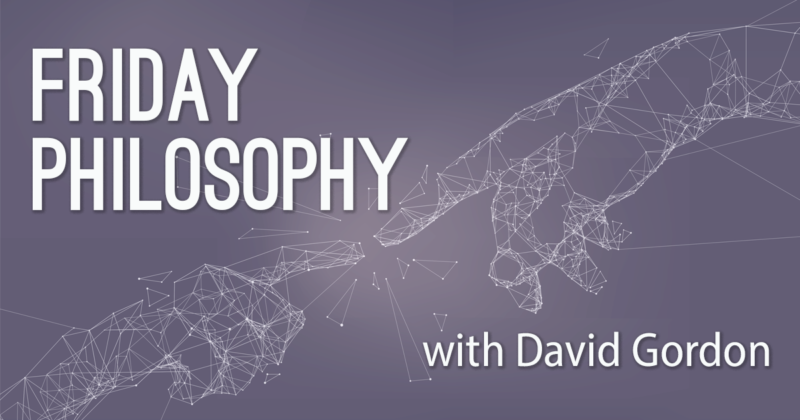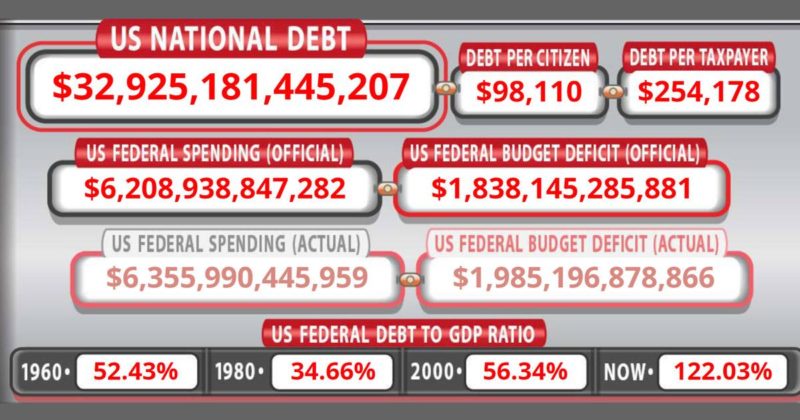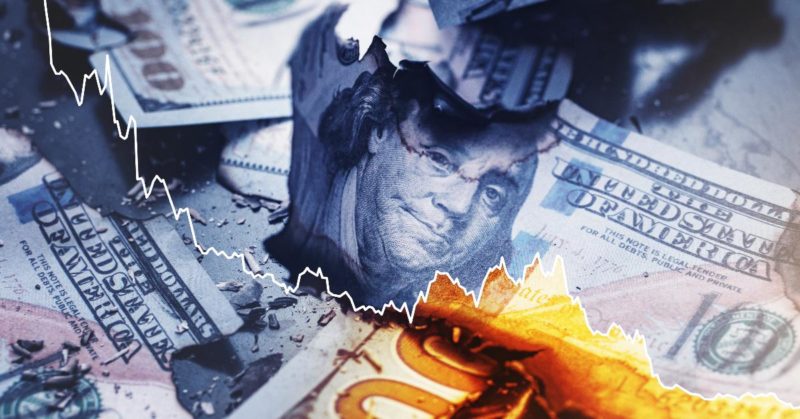Category Archive: 6b.) Mises.org
The USDA’s War on Small Farms
The Biden administration is unleashing the USDA on small farmers, attempting to regulate them out of business. This is done to protect not the public's health, but politically connected agriculture interests.
Original Article: "The USDA’s War on Small Farms"
Read More »
Read More »
Bidenomics: A Boom That Awaits an Inevitable Bust
While unemployment currently is low and the rate of inflation has fallen somewhat, Bidenomics is setting off a boom that is unsustainable. We know what happens next.
Original Article: "Bidenomics: A Boom That Awaits an Inevitable Bust"
Read More »
Read More »
Where’s the Beef?
Americans are mad about the economy, and particularly about the Fed's inflation of prices and declining inflation-adjusted wages and incomes. Keynesian economist Paul Krugman, on the other hand, thinks that you are ignorant and that everything in the economy is great. Mark looks at Beef prices and consumption to provide some insight into why Americans are rightfully mad at the Federal Reserve, Democrats, and Republicans. Mark concludes that...
Read More »
Read More »
No State Is Morally Fit to Spread Global “Freedom”
[Philosopher] Eric Mack [in his article "Permissible Defense"] uses a device employed by all too many libertarians—of holding the ideal free-market anarchist system or a limited government as virtually equivalent to the current State-ridden system. Thus, he points out quite correctly that isolationism makes no sense as a principle for a free-market protective agency; he leaps from there to the conclusion that, at least for an anarchist,...
Read More »
Read More »
Threats Against the State: Anarcho-Tyranny, Murder, and Legitimacy
On August 9, the Federal Bureau of Investigation killed Craig Robertson, a seventy-four-year-old Utah man, during a raid on his home. The man had posted numerous online threats, saying he wanted several state officials dead and had the means to make that happen. The authorities took his declarations at face value, although he was a near octogenarian dependent upon a cane to walk and was described as being “frail of health” by his neighbors....
Read More »
Read More »
The Eurozone: An Example of Failed Keynesianism
The eurozone economic figures show the risk of stagflation, and the short-term impact is clear in Germany and France, but it extends to the rest of the countries.
Why has the eurozone lagged the United States and other developed economies in recent years? The enormous stimulus packages, including the 2009 Growth and Job Plan, the Juncker Plan, the New Green Deal, and the Europe Next Generation, are proving that central planning only delivers poor...
Read More »
Read More »
Why Plea Deals Are a Miscarriage of Justice
Lawyers for two of the Proud Boys convicted for their role in the January 6 assault on the Capitol are filing appeals claiming that they are being subject to a "trial tax," being punished for rejecting a plea deal offer. Bob uses the occasion to explain his long-standing objection to plea deals.
Article on the 'Trail Tax' Imposed on the Proud Boys: Mises.org/HAP413a
Ex-Proud Boys Leader Sentenced Despite Not Being in Washington on Jan....
Read More »
Read More »
The Great Phony Disinflation Enters Its Finale
Supposedly, the "big news" is the decline of inflation. However, the monetary and political forces driving the latest bout of inflation have not gone away.
Original Article: "The Great Phony Disinflation Enters Its Finale"
Read More »
Read More »
The Censorship Industrial Complex Exposes the Kleptocracy’s True Intentions
In the past decade, the growth of the Internet and social media has brought with it a dramatic uptick in populist sentiment. Legacy institutions have declared war against populism, referring to its claims as “misinformation” or “disinformation” and calling on the government or government-adjacent actors (herein referred to as “the censors”) to clamp down on such claims as they spread across the Internet like wildfire. The censors rarely decline...
Read More »
Read More »
Can We Find a Basis for Private Property Rights?
Property and Justice: A Liberal Theory of Natural Rightsby Billy ChristmasRoutledge, 2021; xii + 184 pp.
What is the basis for property rights? Murray Rothbard’s answer starts from self-ownership. Each person owns himself and on that basis can acquire unowned resources by appropriating them. Most contemporary political philosophers reject Lockean theories of this sort. One of their key reasons for doing so has to do with a crucial part of property...
Read More »
Read More »
Dollar Hegemony Is Ending Due to Geopolitical Changes
Since the end of World War II, the US dollar has been the world's reserve currency. That status may well change because US monetary authorities insist on inflating the dollar into oblivion.
Original Article: "Dollar Hegemony Is Ending Due to Geopolitical Changes"
Read More »
Read More »
How Does One Define “Libertarian”?
The Economist reported on August 14, 2023, that “Argentina could get its first libertarian president.” They added that Javier Milei, the winner of Argentina’s election primary was, imagine this, a “free-market radical.” The problem, as I see it, is that few people actually know what a libertarian is, just like few people in America who call themselves “socialists” actually know what socialism is.
When I was young, I thought I was a liberal. Then I...
Read More »
Read More »
Beyond Crisis: The Ratchet Effect and the Erosion of Liberty
After governments create crises, they use those crises to seize new powers. After the crisis subsides, governments give up some, but not all, of their new authority, which we call the ratchet effect.
Original Article: "Beyond Crisis: The Ratchet Effect and the Erosion of Liberty"
Read More »
Read More »
Ethnic Prejudice and Wealth Gaps: Does the First Lead to the Second?
California's decision to grant reparations to black Americans has galvanized activists across the globe. Activists think that doing so will remedy the black-white wealth gap. Ensuring that blacks are on par with whites, however, is a strange goal, since East Asians outperform whites on several metrics, including education. Rather than contrasting blacks with whites, political activists should investigate why blacks have lagged behind relative to...
Read More »
Read More »
9/11 and the Triumph of the Uniparty
On this episode of Radio Rothbard, Ryan McMaken and Tho Bishop look at the domestic costs of 9/11 and its continuing impact on Americans. The two discuss articles they wrote this week about how the events sowed the seeds of the current regime, how it reversed the trajectory of rising government skepticism in the 90s, and the need for accountability still to this day.
Recommended Reading
"Three Reasons Why Military Recruitment Is in...
Read More »
Read More »
Saving Marxism from the Labor Theory of Value: It Is Still Bad Theory
While Graham Priest seems to have "rescued" Marxism from the labor theory of value, he cannot rescue Marxism itself.
Original Article: "Saving Marxism from the Labor Theory of Value: It Is Still Bad Theory"
Read More »
Read More »
The White House, the Fed, and the Economy: Mises Circle in Fort Myers, FL
Every day, Americans feel the political capture of the economy. Inflation, taxes, and regulatory costs hit our paychecks and savings. The regulatory capture of medical industries; food and energy production; and the various instruments of Big Tech empowers the regime with new tools to promote their latest ideological cause. The ever-growing burden of government debt has become a crisis without any political will to address it.
This November, the...
Read More »
Read More »
Hollywood Meets the Austrian Business Cycle
Hollywood has captivated our collective imagination for over a century. We tend to view it as something other than an industry subject to the same immutable laws of economics like cars, coffee, lumber and everything else. The current strike by Hollywood writers and actors in the face of multiple movies losing almost unheard-of amounts of money, cash bleeding streaming services and declining stock prices has been a wake-up call to an industry that...
Read More »
Read More »
The Coming Collapse of the Global Ponzi Scheme
In the global Ponzi scheme, thin air and deceit substitute for sound money. As hedge-fund manager Mitch Feierstein wrote in Planet Ponzi, “You don’t solve a Ponzi scheme; you end it.”
Original Article: "The Coming Collapse of the Global Ponzi Scheme"
Read More »
Read More »
Why the Fed’s Tight Rate Stance Damages the Economy
On August 16, 2023, the Federal Reserve expressed concern about the pace of inflation, saying future rate hikes could be necessary if conditions do not change. Currently, the federal funds target rate is between 5.25 and 5.50 percent, the highest level in more than twenty-two years.
Mainstream economists and journalists think about inflation in terms of consumer prices. To counter a general increase in prices, they believe, the central bank should...
Read More »
Read More »




























